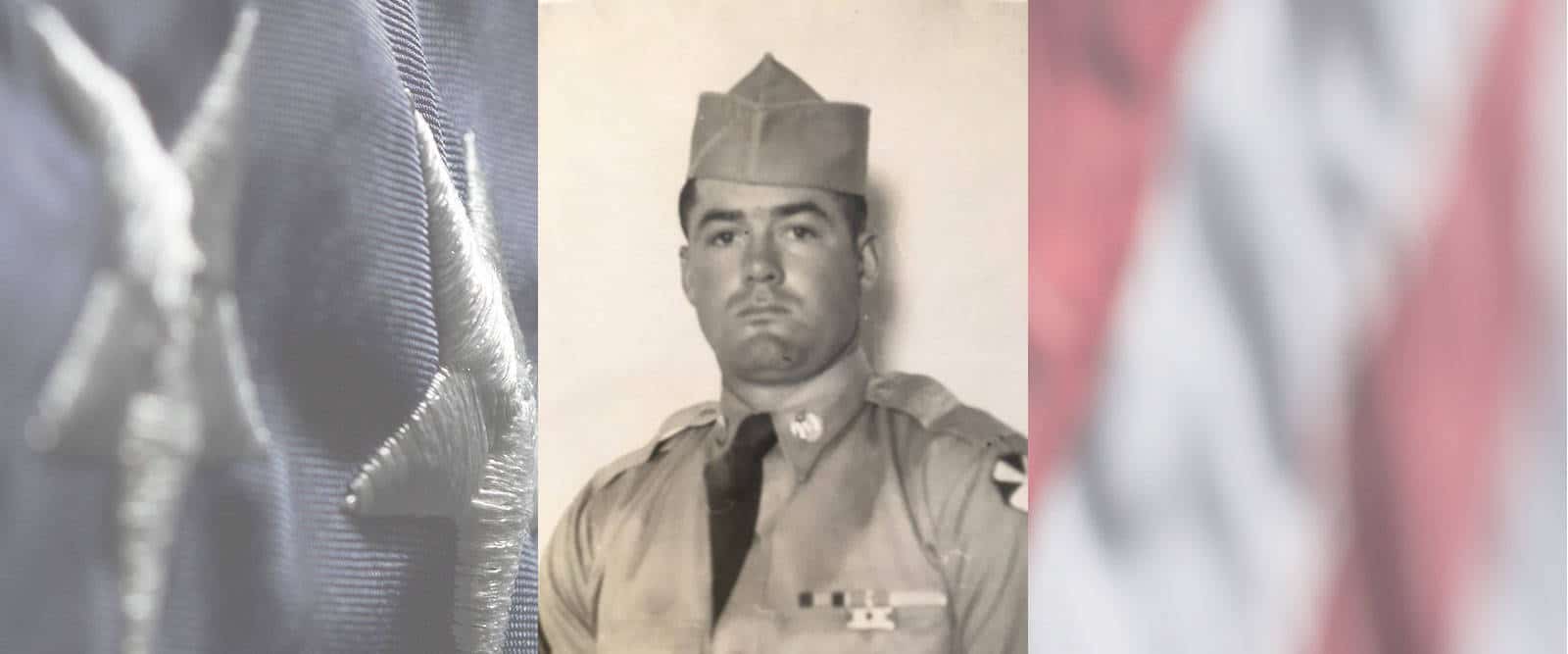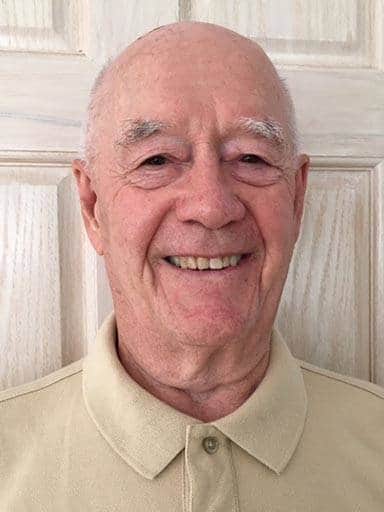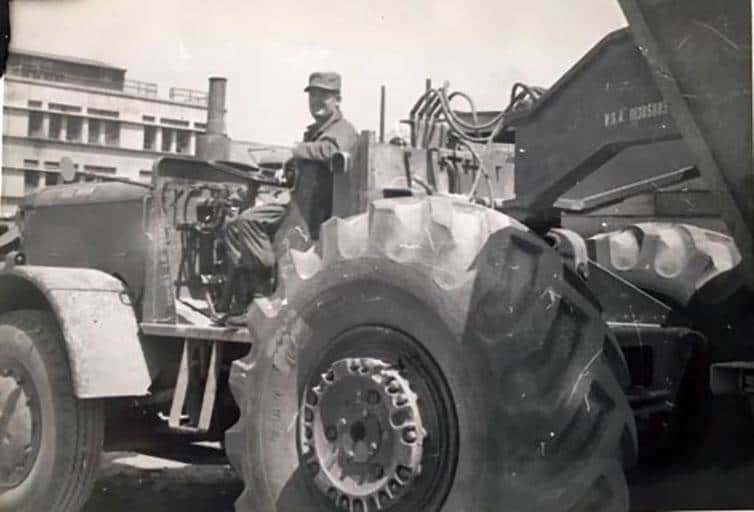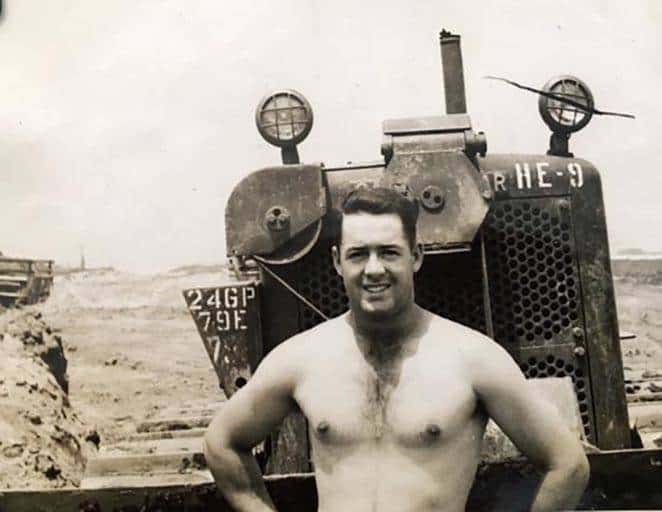U.S. Army Korean War Naperville, IL Flight date: 08/09/17
By April Horner, Honor Flight Chicago Veteran Interviews Volunteer
Lawrence Facchinello grew up on the family farm in Sterling, Colorado. There was no electricity, no indoor plumbing, and no heat. He didn’t need an alarm clock because, he says, “it was like being in the military. When dad was up and walking around, it was time to get up.” They had two hundred head of cattle; he milked cows before and after school, ground feed, hauled hay, working until it was dark during the winter. In the summer, he worked in the hot fields of sugar beets, barley, and corn–all shucked by hand. This upbringing instilled a sense of duty and seriousness that would last a lifetime.
In 1950 Lawrence graduated from high school and in 1952, at the age of twenty, the Army drafted him. Eight weeks of basic training at Ft. Leonard Wood, Missouri were followed by four months of heavy equipment training. Lawrence figures the Army probably looked at his background, saw he had farming experience (and probably used tractors), and decided the transition to heavy equipment operation would be easy for him. He was trained on bulldozers, backhoes, and the turnapole (an earth-moving machine). Lawrence remembers driving the giant turnapole was a lot of fun because it could zoom along at forty miles per hour! Although he didn’t know how he’d use this training, he knew he would be going to Korea. Everyone who was drafted was sent to Korea.
Following a brief visit home, Lawrence shipped out from San Francisco on the USS General Meigs. After the rigors of farm life, the twelve-day trip seemed long and boring to Lawrence. There were 4500 or so troops packed onto the ship, and there was nothing to do all day. The ship was made for transporting troops; there were no facilities for recreation. At night, the guys slept below the decks in hammocks strung from poles and stacked fourteen high. A guy could sleep all day if he wanted to. Lawrence had no idea what he would be doing or where he would be sent. When the USS Meigs docked in Pusan, he boarded a train to Seoul. Finally, he was assigned to the 79th Engineer Battalion stationed near Seoul, South Korea.
The war was still going on when Lawrence arrived in early 1953. At first, he worked at clearing the way for tanks and other military operations, mostly creating roads. When the war ended in July 1953, the work changed. Heavy equipment was no longer needed for the war effort. However, it was needed to build new roads and rebuild roads and infrastructure that had been destroyed. His most memorable projects were the rebuilding of the Hangang Bridge and the restoration of the Seoul waterway, which supplied drinking water for the citizens of Seoul. In the first days of the war, the bridge had been deliberately destroyed by South Korean troops to slow the advance of the invading North Korean Army. At the time of its destruction, the Hangang Bridge was the only way to cross the Han River. When the bridge was demolished, Seoul’s water supply line, which ran parallel to the river, was also destroyed.
While working several months on this project, Lawrence lived in a 16’ X 16’ floorless squad tent set up on the dry riverbed of the Han. There was no water, so it had to be brought in–5 gallons for drinking, 5 gallons for bathing. “Once a week they’d pick up our laundry, bring you C-rations, and that was it.” Lawrence can’t remember exactly what was in his C-rations except for the canned peaches. Those were his favorite. There was also some kind of chocolate but according to Lawrence, “it was not very tasty.” And even though the guys got free time, there was really no place to go in an area that had been devastated by war. With his disappointment with C-rations and the proximity of the K-16 Airstrip, Lawrence got to thinking. He figured the Air Force base would be near the airstrip, and their food had to be better than his C-rations. It was easy to hitch a ride down to the K-16 and what he found in the mess hall was amazing. They had steak, mashed potatoes, ice cream–the food was excellent compared to what they got in their C-rations. He had no trouble fitting in the chow line. “If you had a uniform on, you were a soldier, and you were welcome.” Once they discovered meals like they had at home, Lawrence and his buddy were hitch-hiking to the K-16 facility for dinner every night! Lawrence says, “If you’re going to join the service, join the Air Force!”
Workdays for the 79th EB began when the sun came up. Work on the Han River projects was directed by a Korean contractor; however, Lawrence did not speak a word of Korean and the contractor didn’t speak English. So, they communicated using hand signals! Lawrence and his men installed interlocking panels for the waterway and then dug out all the sand to create a trench. Then Lawrence lowered the four-foot diameter, concrete water pipes into the trenches. This new waterway became the source of Seoul’s drinking water when the project was completed. There were other assignments including one time when the mayor of Seoul needed the services of a backhoe. Lawrence drove the backhoe to the mayor’s backyard and took care of the request–an act of American goodwill.
When his tour of duty was up in September 1954, Lawrence shipped home to San Francisco. Then it was on to Ft. Carson, Colorado where he was processed for discharge. There was no fanfare, no homecoming parade, no brass bands. He returned to the family farm for a year, but could see there wasn’t much opportunity for him there. It was then that he decided to take advantage of the GI Bill and go to college. He had seen that in the service he was just a number. But the more education a soldier had, the better the position he could get. Lawrence decided he wanted to get ahead, and getting a degree in mechanical engineering would help him achieve his goal. He says the GI Bill is the best thing the government ever did!
Lawrence describes his feelings about his time in the service like this. “Working on the family farm was not easy, but the work had to be done. The work in Korea was not easy, but it was something I had to do.” Lawrence took his service in the Army very seriously and served his country well. For that we say thank you. Enjoy your day of honor in Washington, D.C.






